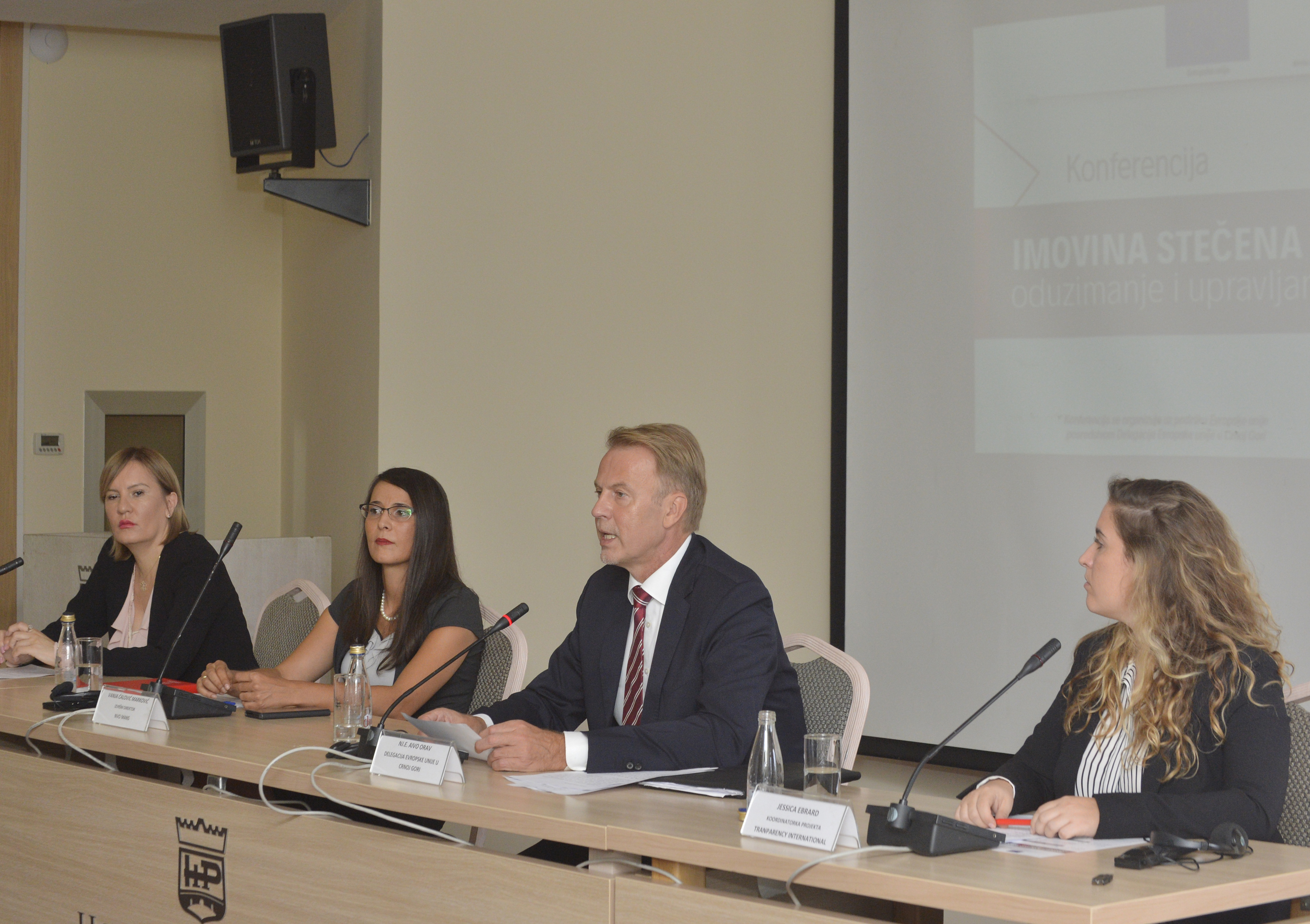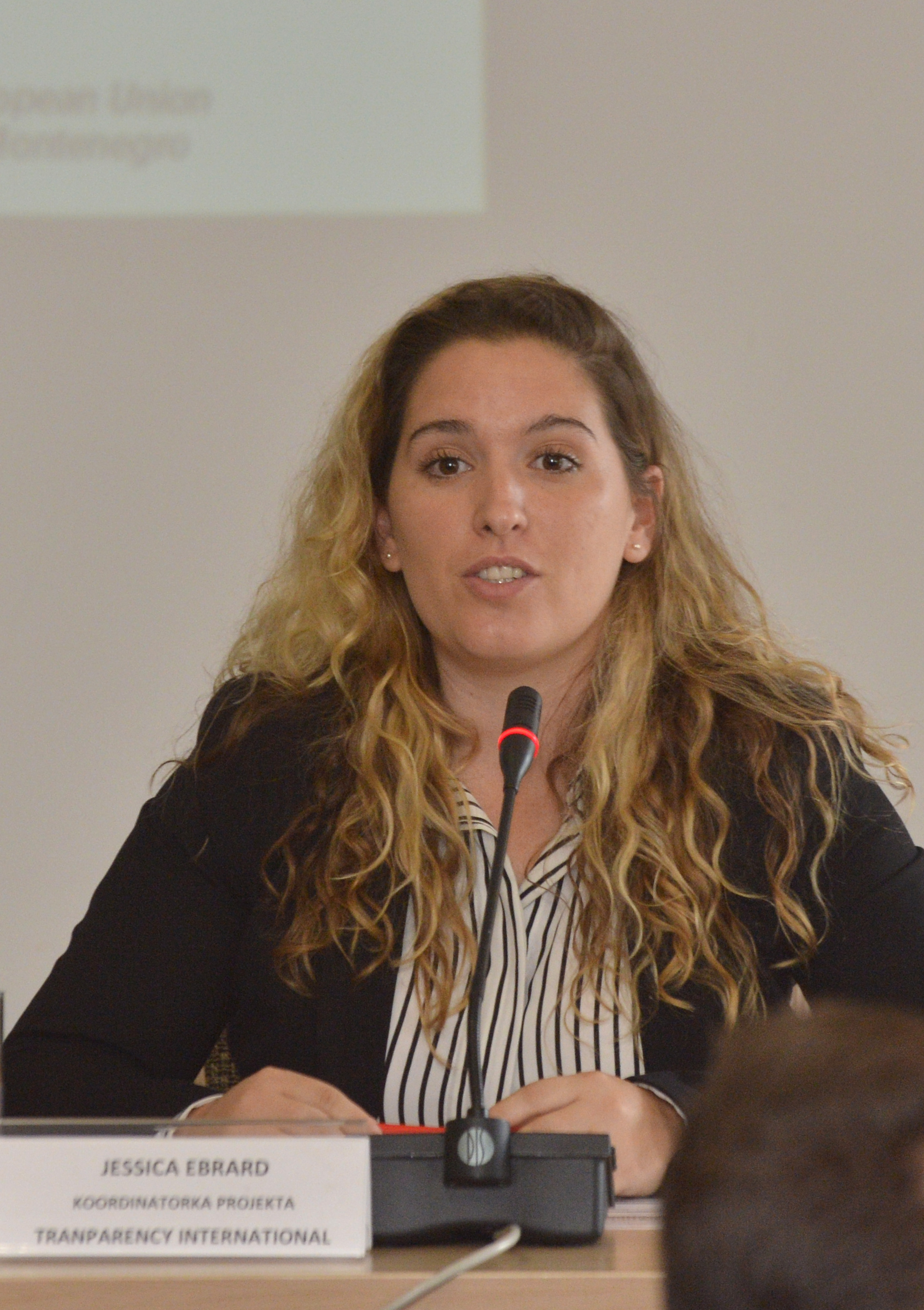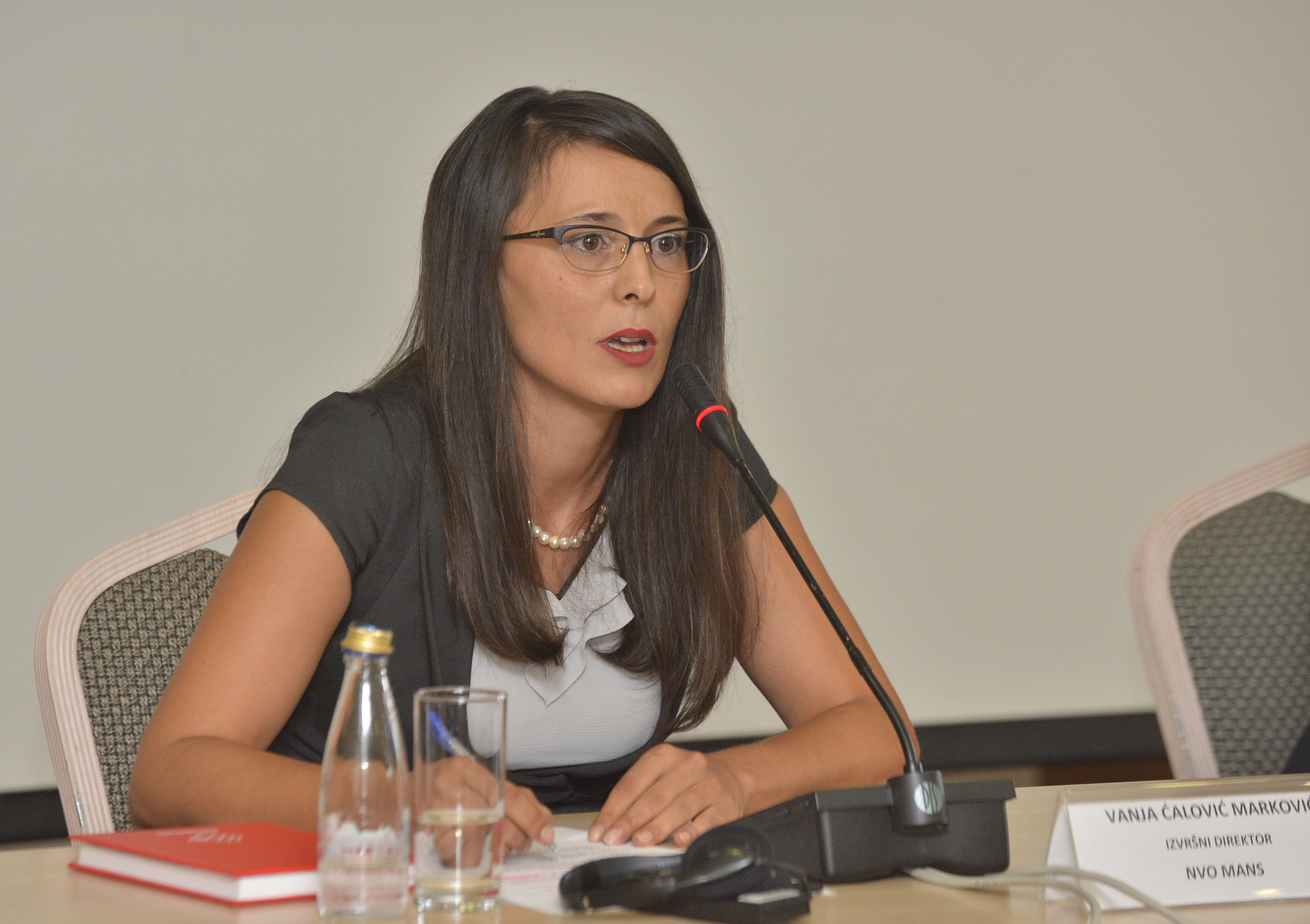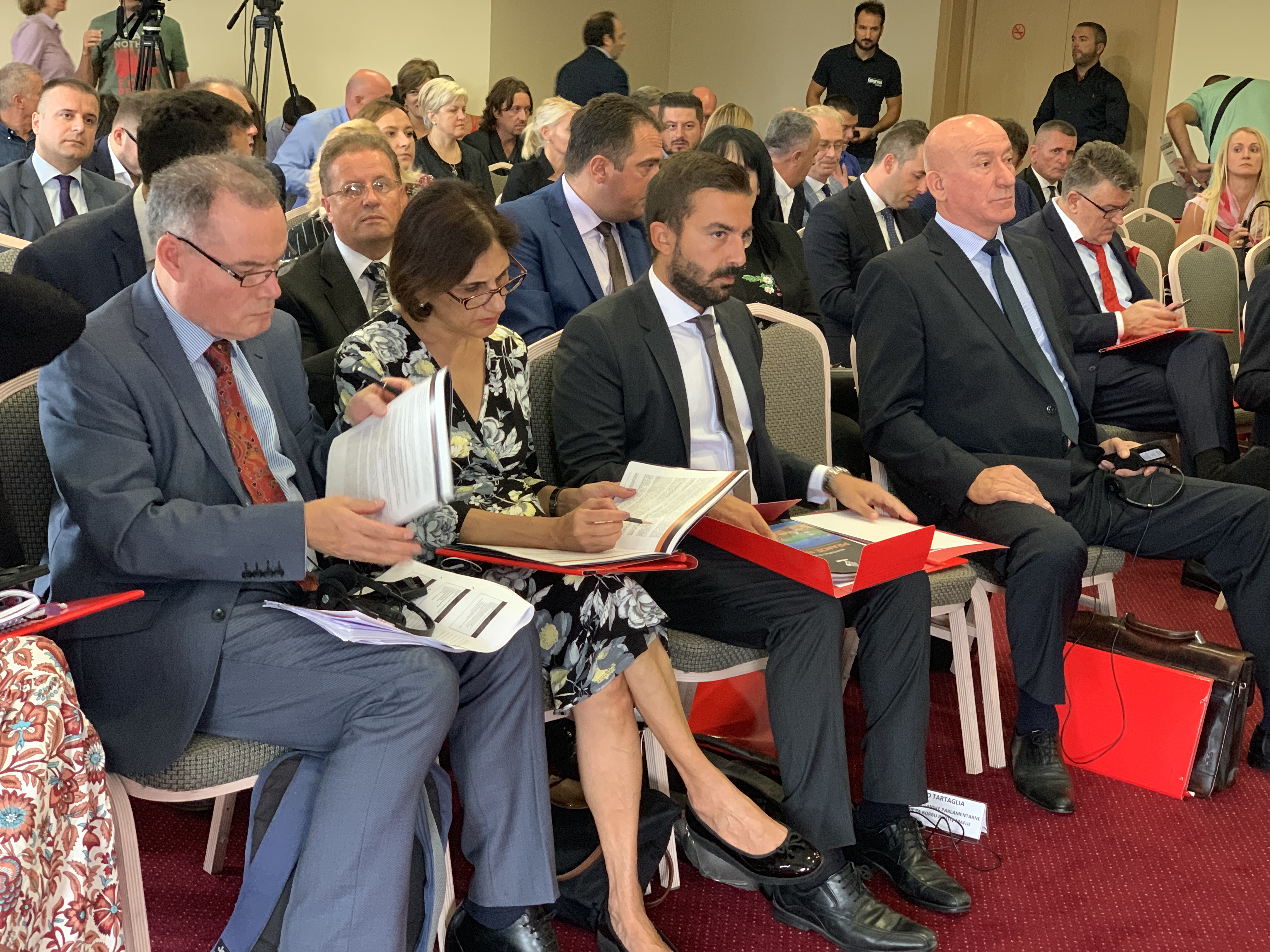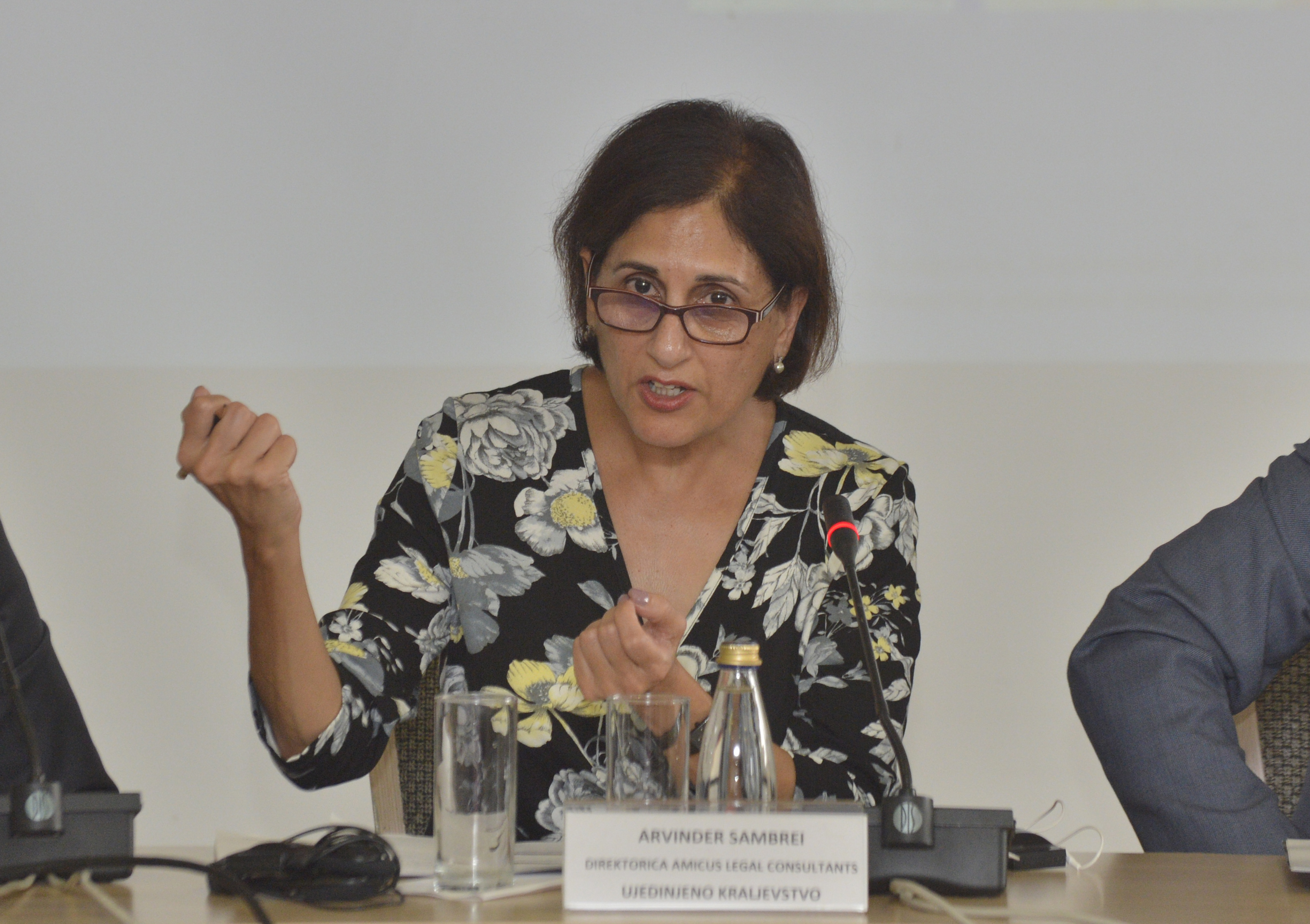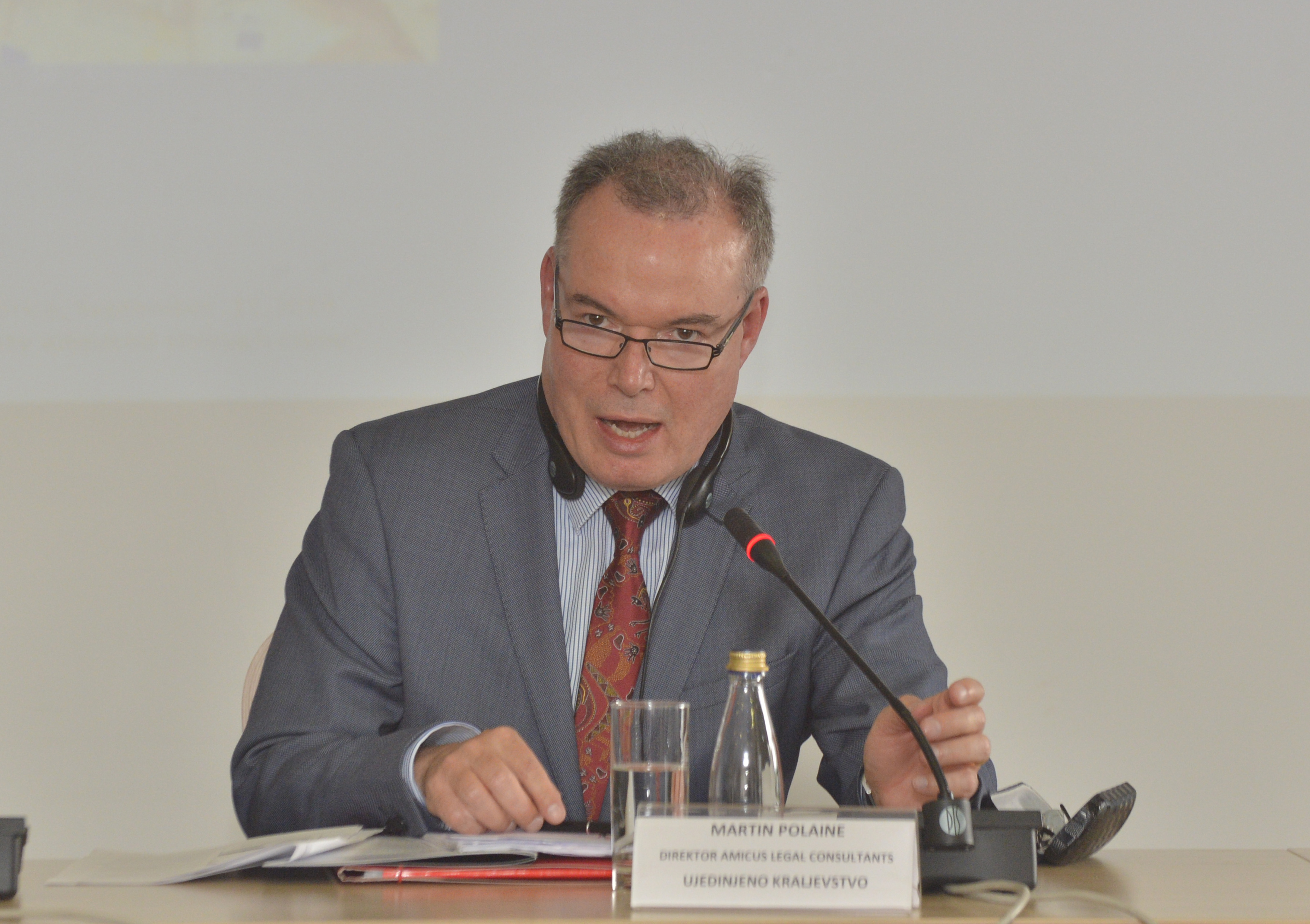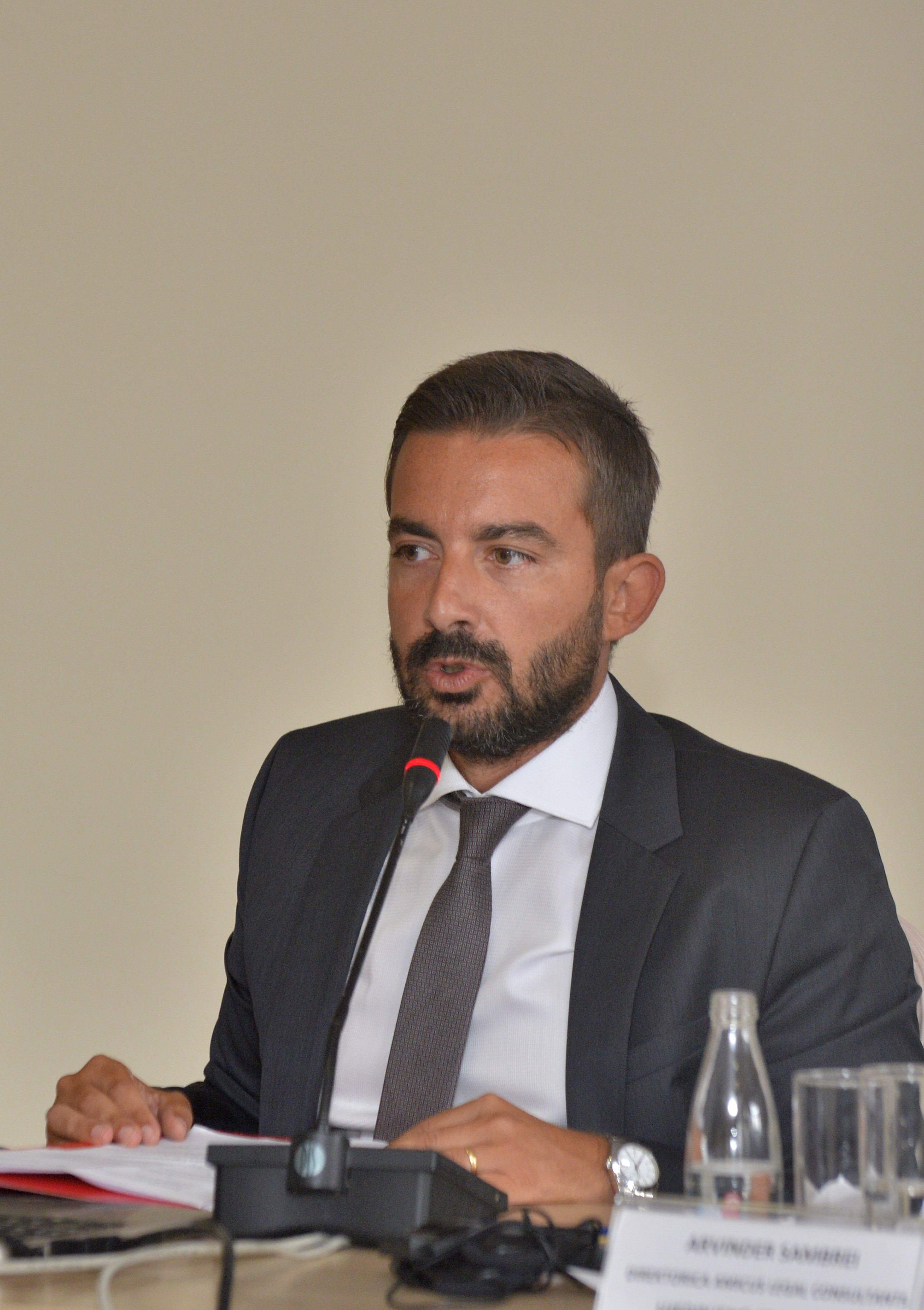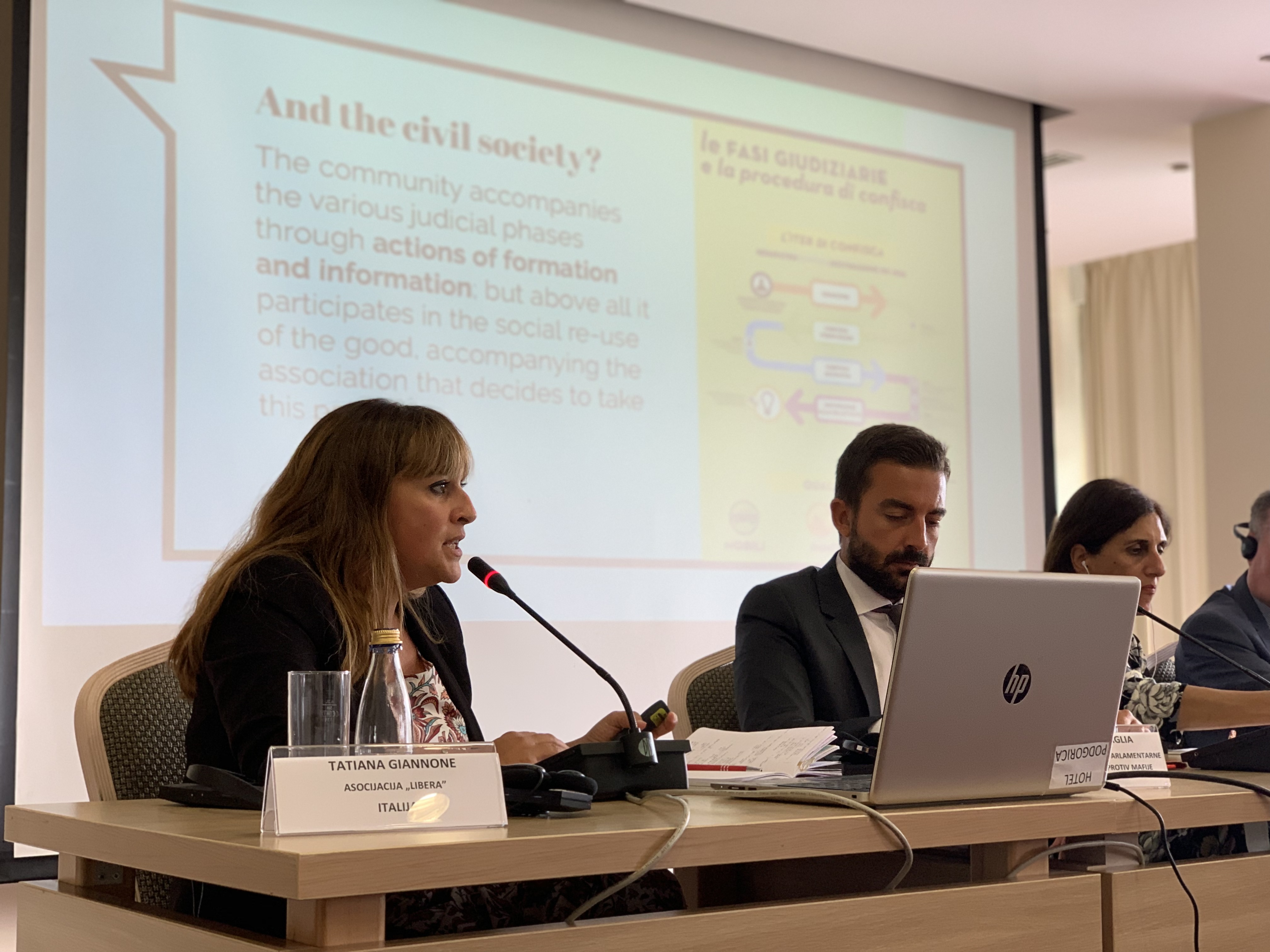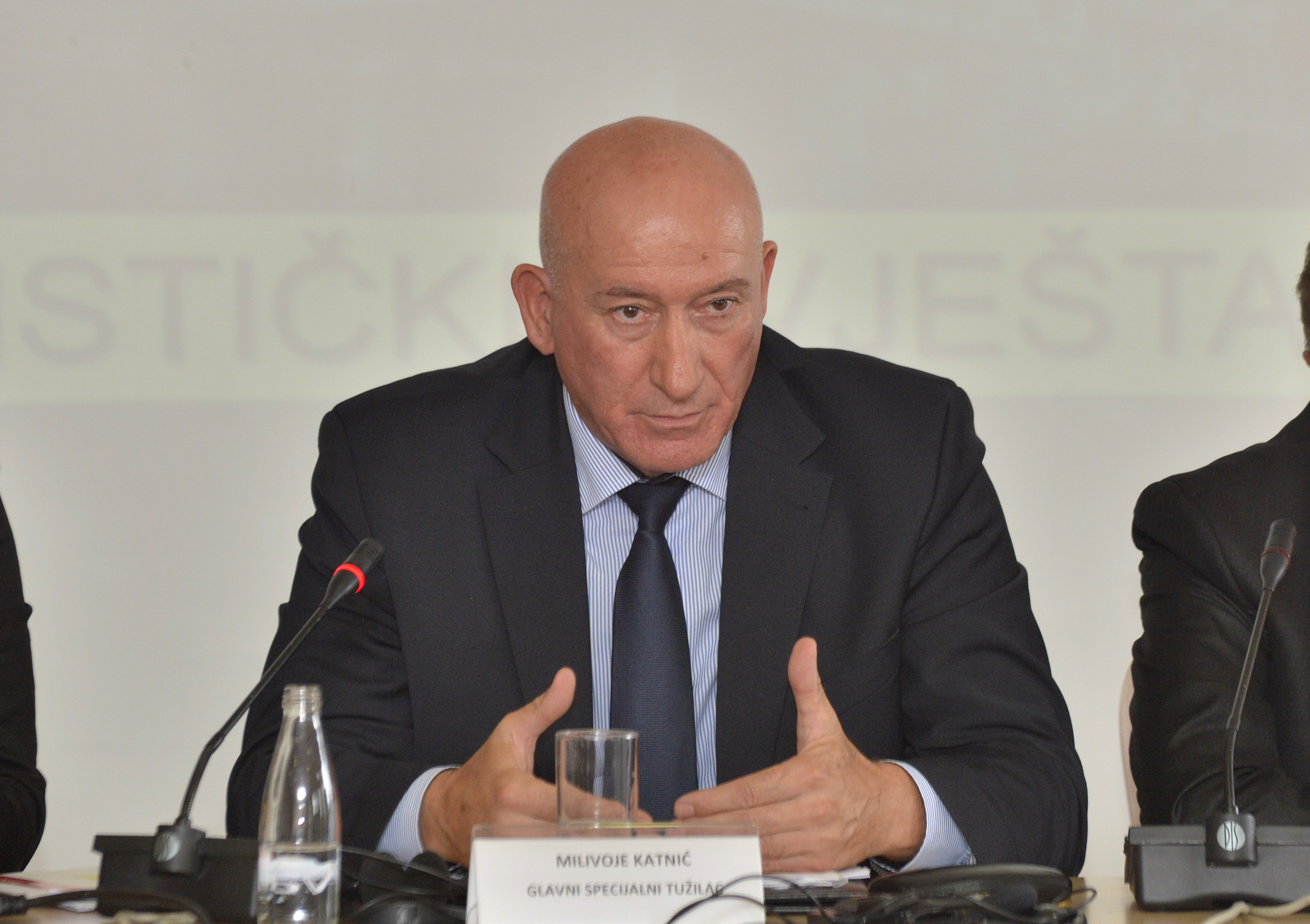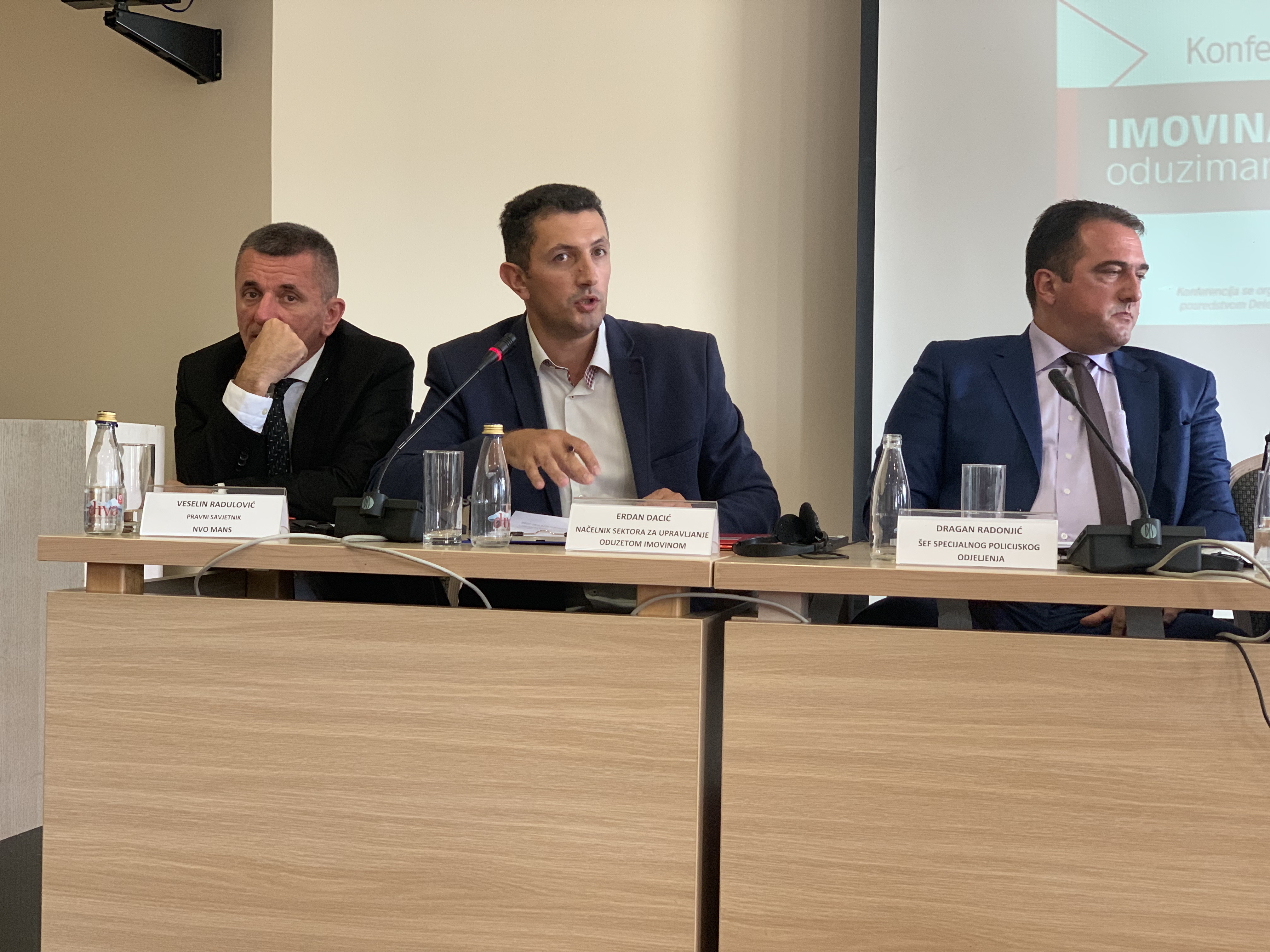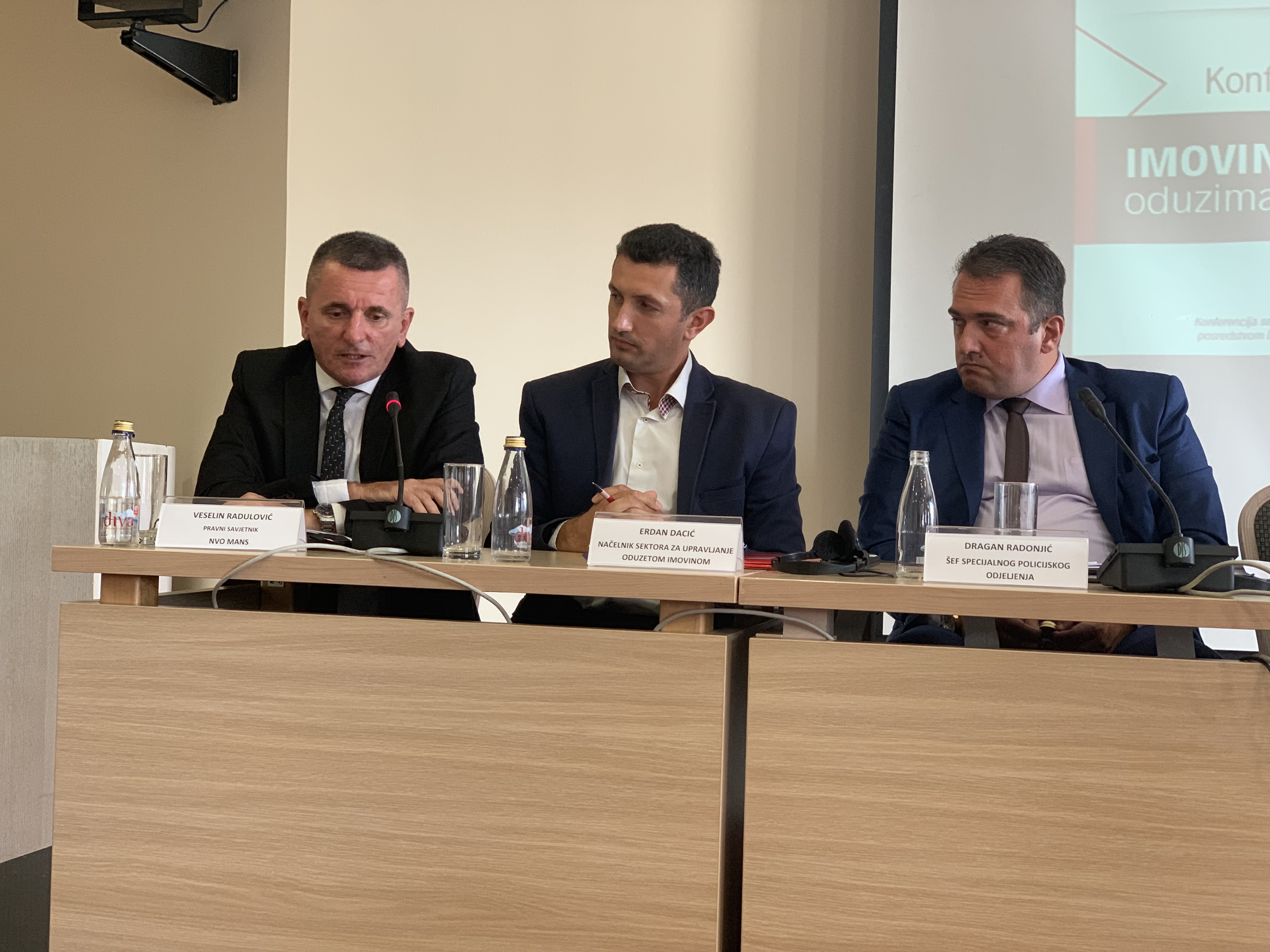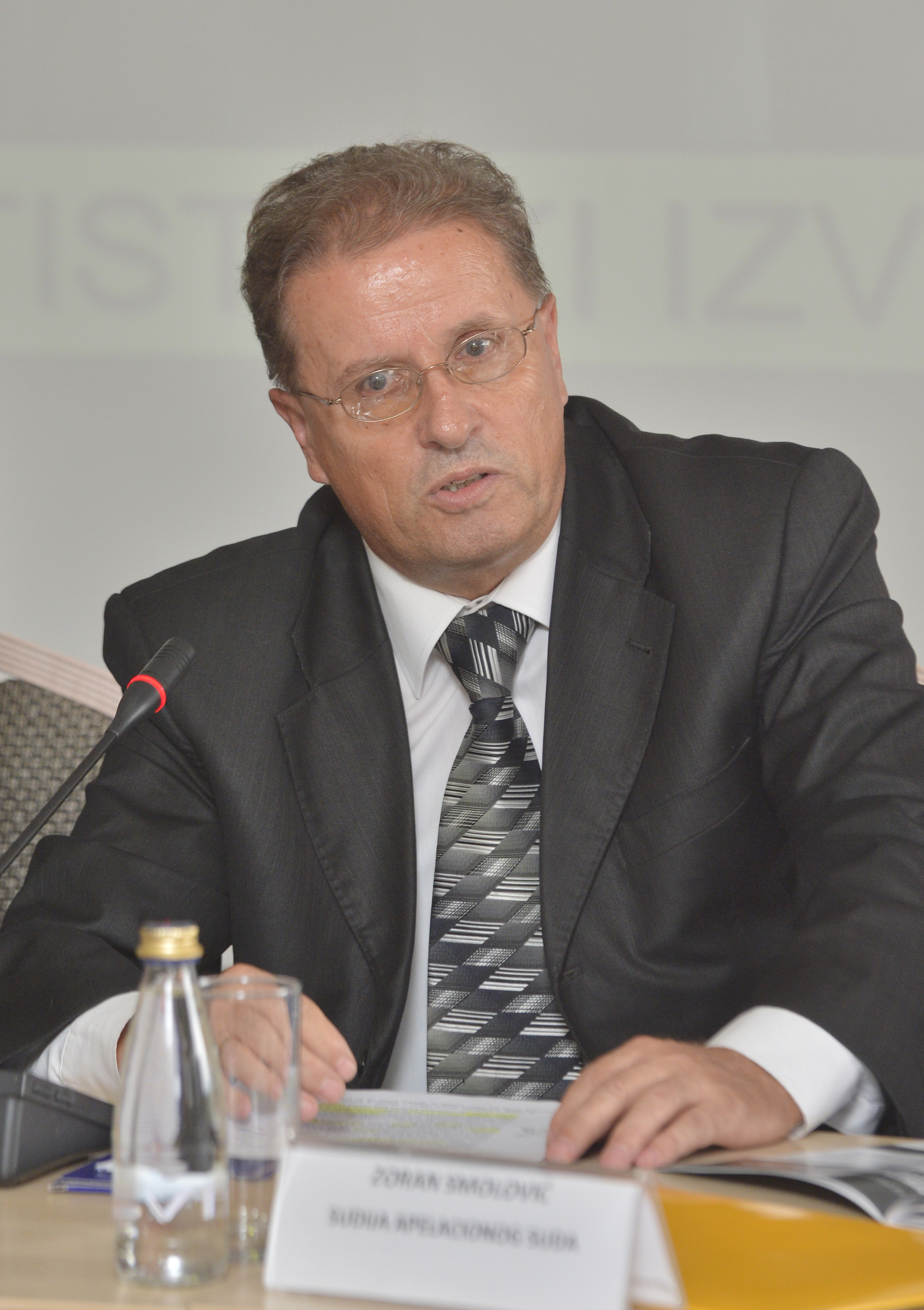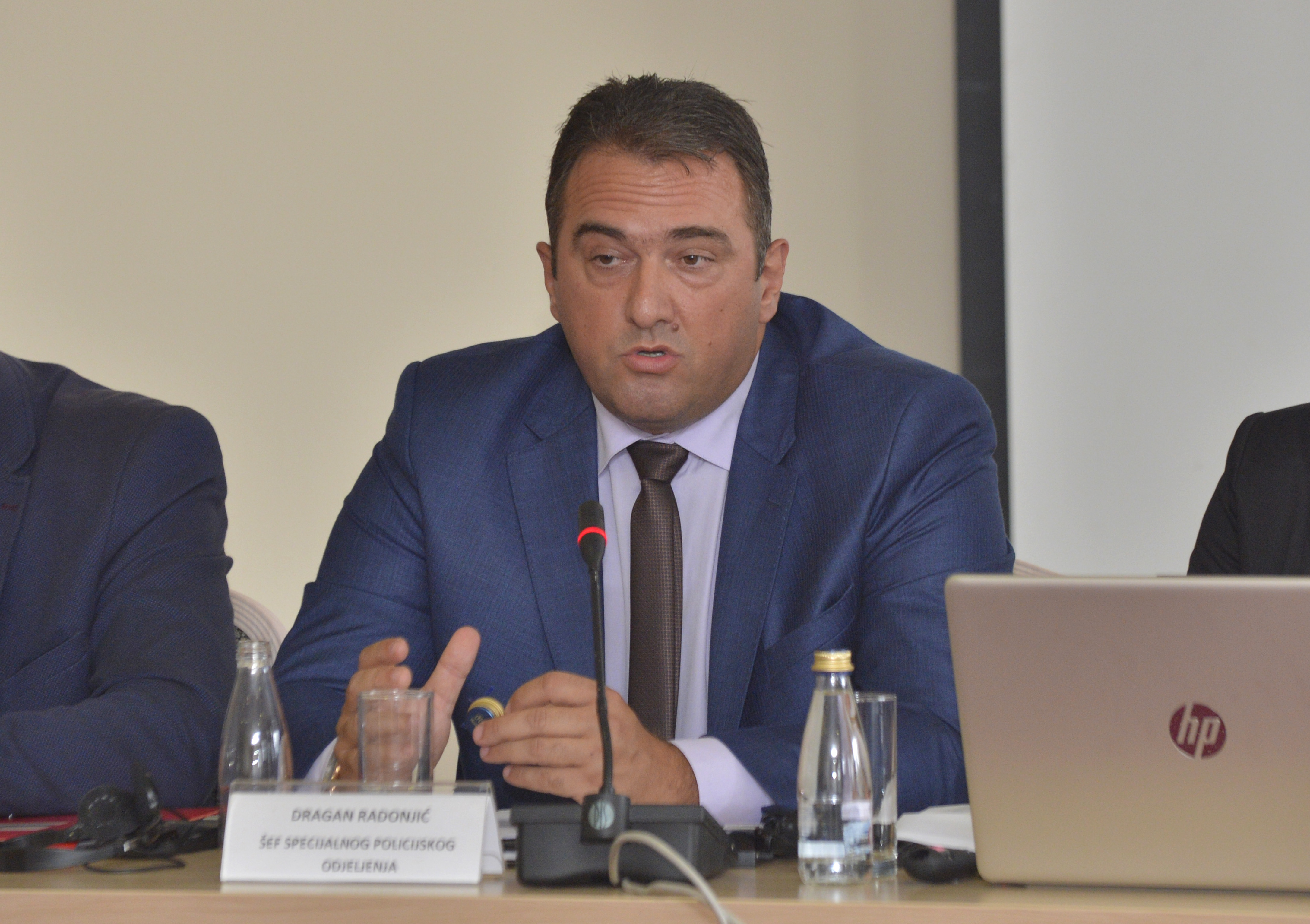Montenegro must find a way to advance financial investigations and effectively manage confiscated property acquired through criminal offense, in order not to repeat the omissions as in the Šarić and Kalić cases to be paid by Montenegrin citizens, it is concluded at the conference “Property acquired through criminal offense – seizure and management“, held on September 11 in Podgorica.
Ambassador of the European Union (EU) to Montenegro, Aivo Orav, said the confiscation of property acquired through criminal offense is an important topic and a key instrument in the fight against crime and corruption.
“Montenegro has made some progress, but corruption is still prevalent in many spheres and remains a worrying issue,” Orav pointed out.
He reminded of the latest European Commission report stating that Montenegro should step up its efforts and conduct financial investigations in parallel with criminal investigations, that is, Montenegro is expected to have physical results in the fight against corruption and to develop mechanisms to seize property acquired through criminal offense.
“Strong and independent institutions remain crucial in the fight against organized crime and corruption”, Orav said at the opening of the conference.
The ambassador concluded that the fight against corruption can only be effective if all actors join forces – executive, legislative and judicial powers, civil society and the media.
Jessica Ebrard from Transparency International said that corruption is present in the judiciary worldwide, not just in this region. According to her, transparency in verdicts, charges, procedures, budget, etc. are a key factor for judges to prove they serve citizens, not criminals.
“Transparency is key everywhere, especially in countries that are dealing with the problem of captive state,” Ebrard said, adding that all Balkan countries face this problem.
The Director General of the Directorate of Justice at the Ministry of Justice, Marijana Laković, said that the Ministry is going to carefully consider all initiatives for amendments to legal regulations that come from other relevant international addresses and non-governmental organizations and, after a thorough analysis of the situation on the ground, it will begin to amend the legislation. She said that zero tolerance for crime and corruption was a motive for the Government to counter such phenomena.
“However, we should be aware that the fight against organized crime does not start or finish anywhere overnight,” Laković said.
Vanja Ćalović Marković, Executive Director of MANS, believes that Montenegro, like Italy, should prescribe ways to manage and use property acquired through criminal offense after being permanently confiscated.
“The property should be used for charity and humanitarian purposes, it should be used by associations of parents of children with special needs, hospitals, schools, to establish an autism centre or to treat sick children for whom funds are being collected every day. We expect the Ministry of Justice to accept our proposals”, Ćalović Marković said.
She pointed to the issue of non-transparency, poor management of confiscated property, while the issues in the judiciary and the State Prosecutor’s Office are particularly problematic. According to her, the society suffers triple damage due to the omissions of the judiciary and the State Prosecutor’s Office in organized crime cases ending in acquittals.
“First, criminals do not go to jail but continue to commit crimes; second, their property is not confiscated, instead, they are using it to finance further crime, and third, the property to be confiscated is returned to them. In the meantime, while the state was managing the confiscated property, negligence and omissions occurred, and we as citizens now have to pay compensation to reduce the value of those assets”, Ćalović Marković reminded.
The most recent cases, but not the only ones, she added, are cases of Šarić and Kalić. Šarić is accused by the State Prosecutor’s Office of wrong crime and it wrongly described the act of committing of another criminal offense. In the case of Kalić, the State Prosecutor’s Office proved that there was no legal origin for €3.5 million, but was unable to prove that the money came from a criminal offense.
“And instead of taking 3.5 million and property from Kalić, we are now returning his property and paying at least three million Euros in damages. Moreover, no prosecutor handling the case was held accountable. Everyone was promoted”, Ćalović Marković said.
All omissions were found by the Appellate Court and confirmed by the Supreme Court, but the Prosecutorial Council did nothing. She reminded that when he was elected the Supreme State Prosecutor and the President of the Prosecutorial Council, Ivica Stanković said that accountability will be determined and that he would make sure to reveal who are the prosecutors not doing their job properly. And that did not happen.
“No significant property has been confiscated from criminals, except in the case of the Budva group, and the practice of signing plea agreements with heads of criminal groups continues. If we cannot put criminals in jail, we can confiscate their property so that they do not continue to finance the commission of crimes. We propose that confiscation be introduced into civil proceedings”, Ćalović Marković said.
When it comes to property management, the laws, she added, are full of holes, and the Property Directorate has no capacity to manage the state property, let alone seized one.
Panel I: International experience
Any investigation and seizure of property requires coordination at the national level in order to avoid the issues that Montenegro has had so far, according to Arvinder Sambei, Director of Amicus Legal Consultants.
She said that when it comes to managing confiscated assets, one has to plan well and first identify whether it is complete assets or only freezing of the account.
“Montenegro may need to analyse the work of its agencies and asset management institutions, whether they are appropriate for the state and whether they are taking appropriate steps”, Sambei said.
Director of Amicus Legal Consultants, Martin Polaine, spoke about UK experiences and tools useful in the fight against organized crime and corruption.
In his words, the institute of civil seizure of property acquired through criminal offense proved to be effective in particular, where the prerequisite for seizure is not to prove guilt, but that the property was obtained through criminal activities.
He said the United Kingdom had seized illegally acquired assets worth around €1.7 billion in the last eight years, of which 600 million related to civil seizure. Polaine hopes that the competent authorities in Montenegro will find an adequate institutional and legislative solution in the near future and that it will be possible to create a group of experts within the State Prosecutor’s Office to handle investigations.
“And it is clear to me that this requires political will. And those in high positions need to push that agenda”, Polaine concluded.
Consultant of the Italian Parliamentary Anti-Mafia Commission and former deputy public prosecutor in Palermo, Roberto Tartaglia, said that in Italy one can claim compensation only if serious errors have been made in property management, and that there is a system of disciplinary responsibility and fines if there is a serious omission by the institution and the individual.
Answering the question what if one gambles away or sells property acquired through crime, he said that in that case, a part of the lawfully acquired property may be seized, and if one refuses to do so, they end up in prison.
Tatiana Giannone of the Liberia Association also spoke about the experiences of Italy, especially in the use of confiscated property for humanitarian purposes. She said that it is very important for all citizens to be aware of what is happening with property and how it is managed. Italy has good solutions in this regard, such as the creation of agricultural cooperatives.
“Nine agricultural cooperatives have emerged from plots taken from mafia organizations. There are 200 employees within these operations and they have a turnover of over five million a year”, Giannone said.
Panel II: Experience of Montenegro
The Special State Prosecutor, Milivoje Katnić, pointed out the results achieved by the Special State Prosecutor’s Office in the fight against organized crime.
He said the Special Prosecutor’s Office had 11 cases against 112 natural or legal persons and nine organized crime cases this year alone.
“We have arrested one hundred and twelve people and some have been released. Nine criminal groups during this time alone. And these are not ordinary criminal groups. These are criminal groups that have hundreds of millions and operate internationally”, Katnić said.
He agrees with MANS’ proposal that the property acquired through criminal offense should be used for humanitarian purposes, specifically mansion in Budva owned by Svetozar Marović, head of the Budva criminal group.
However, the Chief Special Prosecutor is not sure whether MANS’ second proposal to introduce confiscation into civil proceedings is acceptable.
Katnić says that when it comes to seizing the property acquired through criminal offense, there were no delays in the work of judges and prosecutors. He also said that conviction cannot be expected for every indictment because in that case, there would be no democracy.
“There is talk of corruption of judges. I was a judge for 20 years and I don’t know any judge who is corrupt”, Katnić said.
Katnić announced that Marović, who is hiding in Serbia, will be extradited to Montenegro.
“He has to be extradited, the preliminary proceedings against him is still ongoing. Serbia has to fulfil its international obligation”, Katnić said.
He also said the property seized from the Budva criminal group was worth 30 million.
Erdan Dacić, the head of the Department for management for temporarily and permanently seized property in the Property Directorate, claims that in the cases of Kalić and Šarić, the Directorate acted in accordance with the Law on custody of temporarily and permanently seized assets, which did not restrict to whom the property may be leased.
The Directorate has been criticized for leasing the property of Šarić and Kalić to persons associated with them.
Veselin Radulović, MANS’ legal advisor, fears Šarić and Kalić cases could cost the state more than the benefits provided by the State Prosecutor’s Office.
“Poor legal solutions and shortcomings in the legal framework cannot be an excuse for negligence that happened regarding state-owned property”, Radulović said.
The Appellate Court judge Zoran Smolović stated that six cases were finalized before the Appellate Court, since the 2015 Law on seizure and confiscation of material benefit derived from criminal activity came into force.
“In five cases, material benefit was permanently confiscated, and in one case it was temporarily seized by imposing a temporary measure of securing a ban on the disposal and use of real estate”, Smolović said.
The head of the Special Police Department, Dragan Radonjić, spoke about the results of the special team and stated that the initial data (indications) about crime mostly come from the police.

